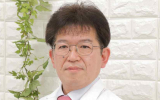
Vaccines Development Center, Osaka University Director of Center for Advanced Modalities and Drug Delivery System
The coronavirus disease 2019 (COVID-19) pandemic, which emerged at the end of 2019, had devastating social and economic consequences worldwide. It is no exaggeration to describe the history of humanity as a history of fighting and defending against pathogens. To date, we have been repeatedly exposed to infectious diseases, such as smallpox, whose marks can be found on Egyptian mummies; plague; and Spanish flu (influenza), which may have accelerated the end of World War I.
The World Health Organization declared the eradication of smallpox in 1980, which was attributed to the discovery of vaccines. Vaccination is a medical technology that artificially induces acquired immunity against pathogens in the human body. Therefore, it is important to investigate vaccine modalities and delivery techniques as well as conduct medical science research on pathogens and human immune responses to establish safe and effective vaccines.
To conduct world-leading research on vaccine development, the Strategic Center of Biomedical Advanced Vaccine Research and Development for Preparedness and Response (SCARDA) was established by the Japan Agency for Medical Research and Development (AMED) based on the “Strategy for Strengthening the Vaccine Development and Production System,” which was approved by the Cabinet in 2021. Within this core center, the Center for Advanced Modalities and DDS was established to develop a seamless research system for the rapid development and social implementation of effective and safe vaccines against pathogens that may cause pandemics in the future. In addition, the center conducts medical research to elucidate the human body’s responses to pathogens and their disease-causing mechanisms. Furthermore, this core center develops strong collaboration systems with core hospitals for clinical research and the industry for manufacturing and supplying vaccines. These activities form a basis for the establishment of an all-Japan system to supply vaccines rapidly to the society during emergencies.
Furthermore, the goal of this core center, i.e., “prevention and control of infectious diseases by directly applying research outcomes to the society,” is applicable not only to infectious diseases but also to other diseases, such as cancer and lifestyle diseases. Thus, this core center is expected to help overcome the problems of the aging society by extending healthy life expectancy. Therefore, the members of this core center consistently strive to achieve its mission.















